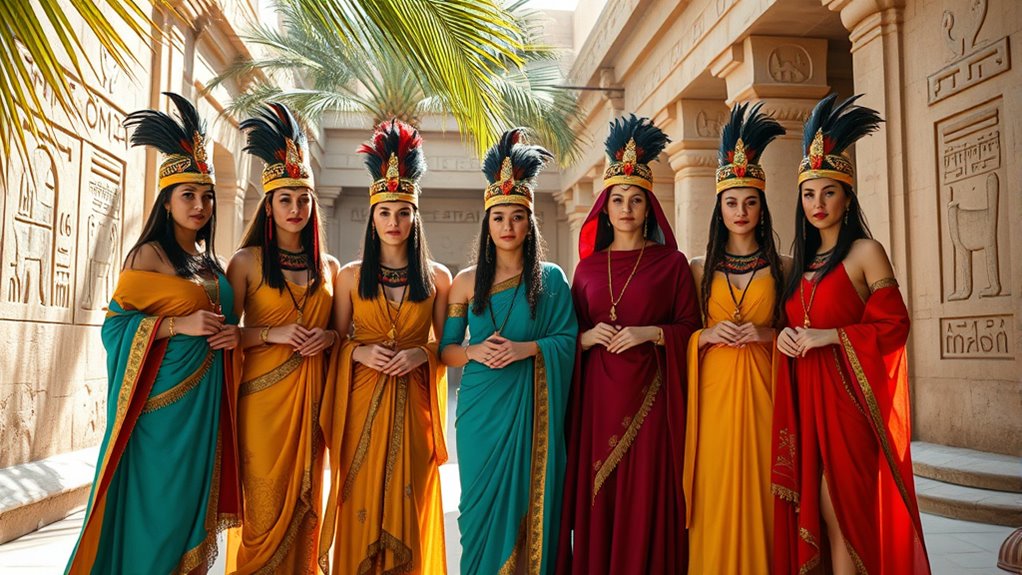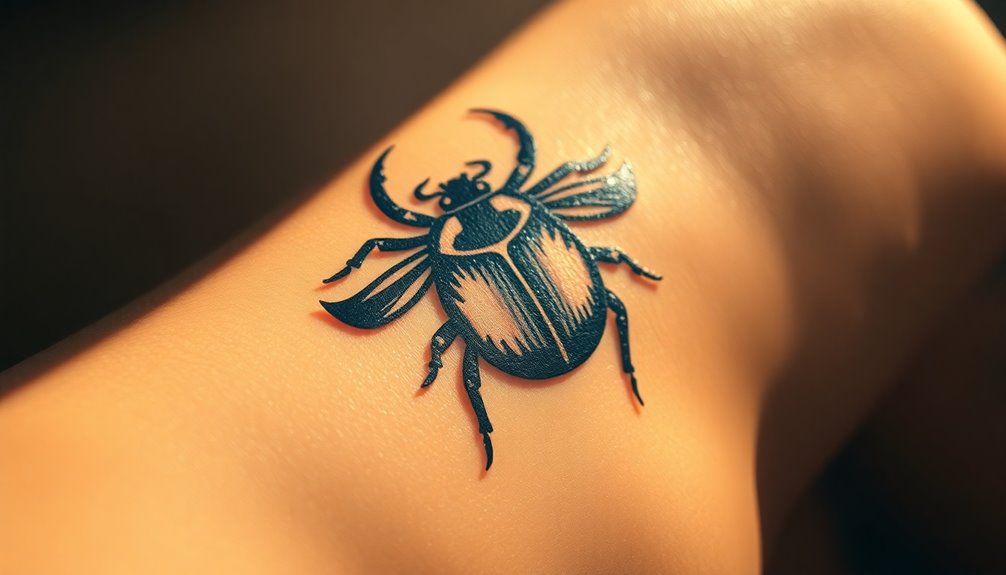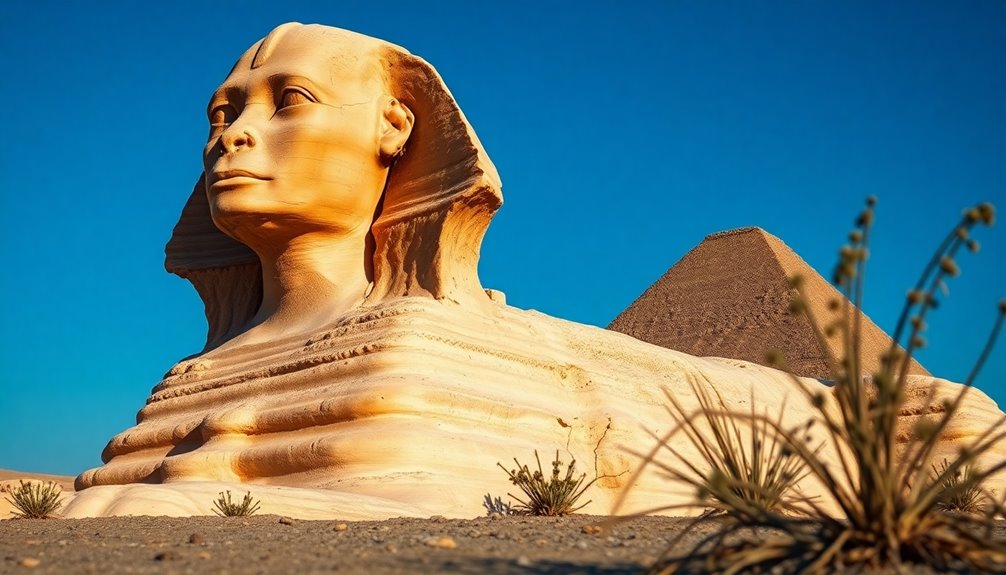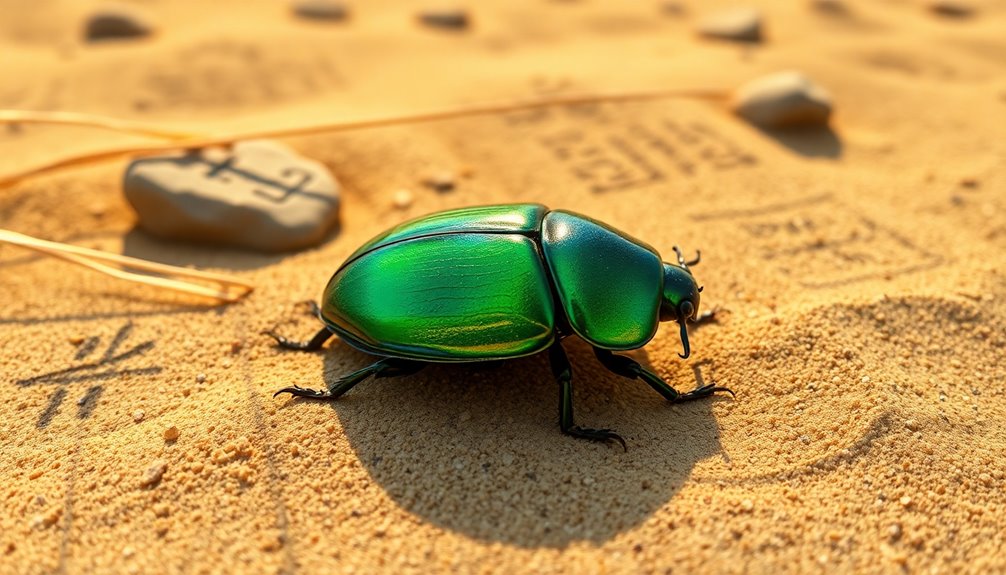Hathor’s seven souls symbolize divine protection and cultural resilience, representing both luck and destiny. As a nurturing goddess, her layered guardianship offers emotional, spiritual, and physical safeguards, making her a powerful symbol of hope and stability. These souls reflect her ability to nurture life and ward off danger, serving as omens of fate or good fortune. If you explore further, you’ll discover how her multifaceted role continues to influence beliefs and traditions today.
Key Takeaways
- Hathor’s seven souls symbolize divine protection and nurturing, embodying positive qualities associated with luck and safety.
- They represent layered guardianship, offering spiritual, emotional, and physical safeguards rather than omens.
- The souls reflect her multifaceted role as a bringer of abundance, joy, and cultural stability, often seen as auspicious symbols.
- In mythology, her seven souls serve as protective forces, more akin to lucky guardians than ominous foreboding signs.
- Overall, they symbolize hope, resilience, and divine intervention, aligning more with fortunate influences than ominous omens.
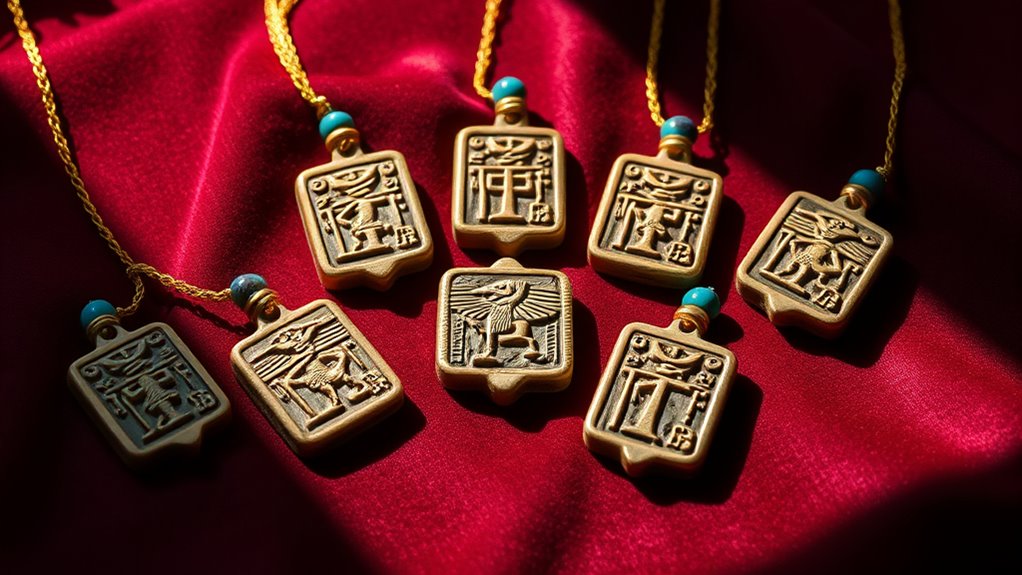
Hathor’s Seven Souls explores the mystical and symbolic layers of an ancient deity’s essence, revealing how each soul represents a different aspect of her divine power. As you explore into this rich mythos, you’ll see that each soul embodies unique qualities—protection, fertility, joy, love, motherhood, music, and rebirth. These aspects aren’t just symbolic; they serve as a mirror to human experience and cultural beliefs, making Hathor a multifaceted figure whose influence extends beyond myth into daily life.
The symbolism of divine protection is central to Hathor’s identity, especially in her role as a nurturing goddess who safeguards her followers. Her seven souls amplify this protective nature, each one acting as a guardian in different circumstances. Whether it’s shielding the vulnerable or guiding travelers through difficult times, Hathor’s divine protection is a constant presence. You can interpret her multiple souls as a layered defense mechanism, each one offering a different form of safeguard—emotional, spiritual, or physical. This layered protection underscores her importance in ancient Egyptian society, where gods and goddesses were seen as custodians of order and safety.
Hathor’s seven souls serve as a layered shield of emotional, spiritual, and physical protection, embodying divine guardianship and nurturing strength.
Culturally, the myth of Hathor holds significant weight. She isn’t just a deity; she’s woven into the fabric of Egyptian life, symbolizing fertility, joy, and the nurturing qualities that sustain communities. Her seven souls serve as a testament to her complex role, embodying traits that are vital for societal stability. The myth underscores her as a bringer of abundance and happiness but also as a fierce protector who can unleash divine wrath when necessary. These stories and symbols reinforce her status as a vital cultural icon, inspiring rituals and offerings meant to invoke her blessings. As you explore her myth, you’ll see that her seven souls are not just abstract concepts but active forces that influence how people view divine intervention, luck, and fate.
Understanding the symbolism of her seven souls allows you to grasp why Hathor remains a powerful figure even today. She embodies the harmony between nurturing and strength, blessing her followers with protection while reminding them of the importance of joy and community. The myth’s cultural significance lies in its ability to connect divine qualities with everyday life, making her more than just a goddess—she’s a symbol of resilience and hope. Her seven souls reveal that divine protection isn’t a simple act but a complex, layered phenomenon, resonating deeply within human consciousness and cultural tradition. Additionally, modern practices sometimes draw inspiration from her multifaceted nature to foster virtual collaboration and community support, illustrating her enduring influence across eras.
Frequently Asked Questions
How Are Hathor’S Seven Souls Depicted in Ancient Egyptian Art?
You see Hathor’s Seven Souls depicted in ancient Egyptian art through sacred imagery that emphasizes their mythological symbolism. These representations often show the souls as multiple faces or figures surrounding Hathor, highlighting their divine nature. The artwork captures their sacred role, illustrating how each soul embodies different aspects of her divine power. This visual approach helps you understand their importance in myth and their connection to fate and luck in ancient Egyptian belief.
Do Hathor’S Seven Souls Influence Modern Spiritual Beliefs?
Imagine a ripple that stretches across time—your personal spirituality is subtly shaped by ancient symbols like Hathor’s Seven Souls. These beliefs influence modern spiritual practices and cultural perspectives, acting as powerful omens of fate or symbols of luck. You may find that, consciously or not, these ancient ideas continue to inspire and guide your understanding of destiny, blending history with your personal journey in a profound cultural influence.
Are There Specific Rituals Associated With Invoking Hathor’S Seven Souls?
You can perform rituals to invoke Hathor’s Seven Souls by focusing on ritual purification, which clears your mind and body, preparing you for spiritual connection. Offer sacred offerings like milk, honey, or incense to honor her. These rituals often involve chanting or prayers, helping you align with her divine energies. Remember, sincerity and respect during your ceremony deepen your connection and invite her blessings into your life.
How Do Scholars Interpret the Symbolism of Hathor’S Seven Souls?
You might wonder how scholars interpret the mythological symbolism of Hathor’s seven souls. For example, they see these souls as representing different aspects of femininity or divine power, using interpretive frameworks rooted in Egyptian mythology. This helps you understand her complex role—whether as protector or omen. Such analyses reveal how the seven souls embody a multifaceted view of fate and divine influence, enriching your grasp of ancient beliefs.
Is There Any Connection Between Hathor’S Seven Souls and Other Egyptian Deities?
You might wonder if Hathor’s seven souls connect to other Egyptian deities. They often symbolize cosmic duality and divine unity, reflecting the balance of opposites in Egyptian belief. Similar concepts appear in gods like Osiris and Isis, who embody life and death or chaos and order. These connections highlight how Hathor’s souls reinforce the universal themes of harmony and duality across Egyptian mythology.
Conclusion
So, don’t let the idea of Hathor’s seven souls scare you. Instead, see them as a symbol of strength and possibility. Embrace the mystery and see how these ancient beliefs can inspire you to trust your intuition and find luck in unexpected places. Even if you’re skeptical, appreciating this myth can remind you that fate isn’t always written in stone—sometimes, it’s up to you to create your own story.

